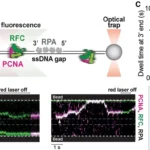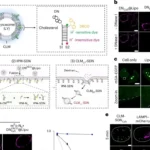Omnidirectional wireless power transfer systems have gained significant traction for their ability to charge devices in diverse positions and orientations. Despite this, existing solutions encounter challenges such as coupled coils, suboptimal structures, and poor misalignment tolerance.
To address these issues, researchers from Virginia Tech introduced a novel omnidirectional wireless power transfer system featuring three fully decoupled coils, comprising one square coil and two perpendicular DD coils.
The research conducts comprehensive modeling and Pareto optimization to enhance the transmitter coil structure’s tolerance to lateral and angular misalignments. Experimental validation demonstrates consistent output voltage and efficiency performance across various misalignment scenarios.
The proposed planar omnidirectional wireless power transfer system undergoes rigorous modeling to analyze its coil structure’s characteristics and the effects of lateral and angular misalignments. Subsequent optimization ensures optimal performance, facilitating free positioning of devices for charging.
A 6.78 MHz omnidirectional prototype is constructed and tested for mobile phone and electronic watch charging cases. Results indicate an efficiency range of 69%-78% for phone charging and 55%-65% for electronic watch charging, showcasing the system’s effectiveness in real-world applications.
Comparative analysis with existing research demonstrates the proposed solution’s superior anti-lateral and anti-angular misalignment performance. Notably, the system offers compatibility with furniture and maintains structural simplicity, making it a promising solution for future 3D omnidirectional wireless charging applications.
The study represents a significant advancement in omnidirectional wireless power transfer technology, addressing key challenges to offer improved performance and versatility in charging electronic devices. The optimized coil structure and comprehensive modeling pave the way for enhanced efficiency and alignment tolerance, contributing to the evolution of wireless charging technologies.
This research holds promise for various applications, including consumer electronics, automotive, and healthcare sectors, by providing a fundamental and convenient solution for omnidirectional wireless power transfer.





